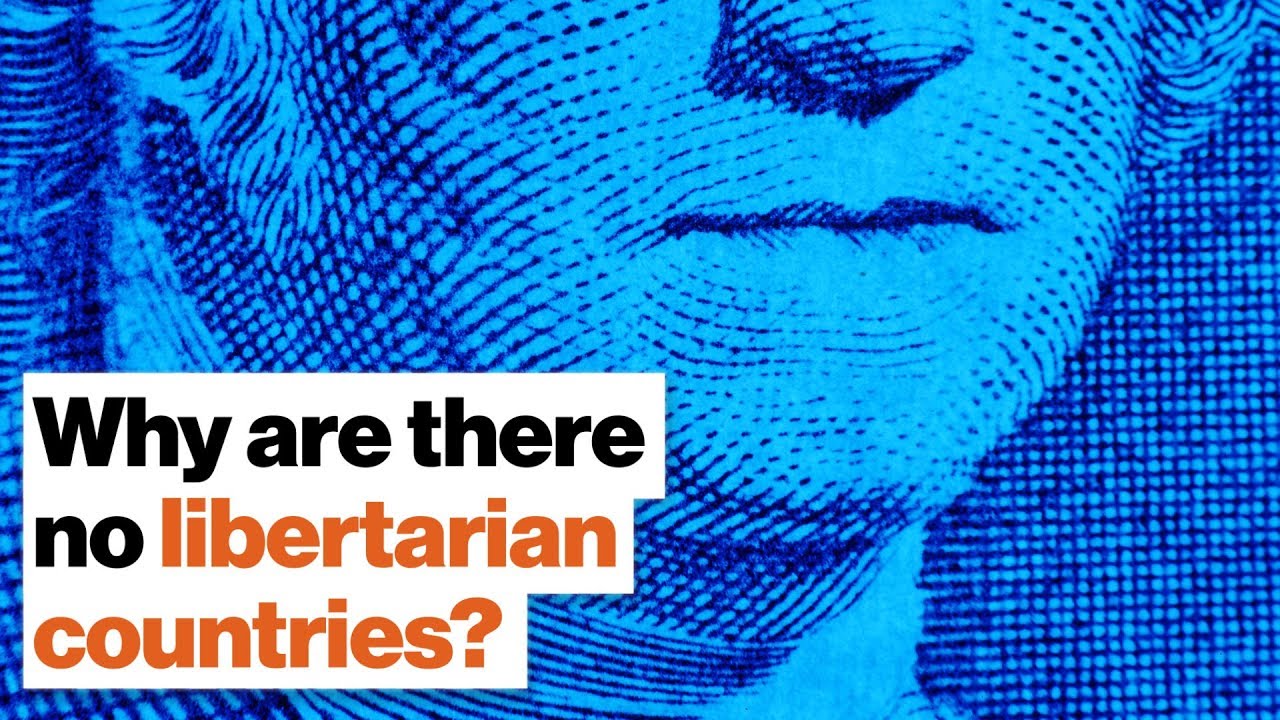Big Think
Is conflict humanity’s natural state? Could we ever agree on a set of values? The knee-jerk response for any student of history would be ‘no’, but the data tells a different story. Psychologist and author Steven Pinker offers proof in the form of Wagner’s law: “One development that people both on the Left and the Right are unaware of is almost an inexorable force that leads affluent societies to devote increasing amounts of their wealth to social spending, to redistribution to children, to education, to healthcare, to supporting the poor, to supporting the aged.” Until the 20th century, most societies devoted about 1.5% of their GDP to social spending, and generally much less than that. In the last 100 years, that’s changed: today the current global median of social spending is 22% of GDP. One group will groan most audibly at that data: Libertarians. However, Pinker says it’s no coincidence that there are zero libertarian countries on Earth; social spending is a shared value, even if the truest libertarians protest it, as the free market has no way to provide for poor children, the elderly, and other members of society who cannot contribute to the marketplace. As countries develop, they naturally initiate social spending programs. That’s why libertarianism is a marginal idea, rather than a universal value—and it’s likely to stay that way. Steven Pinker is the author of Enlightenment Now: The Case for Reason, Science, Humanism, and Progress.
Read more at BigThink.com: http://bigthink.com/videos/steven-pinker-why-there-are-no-libertarian-countries
Follow Big Think here:
YouTube: http://goo.gl/CPTsV5
Facebook: https://www.facebook.com/BigThinkdotcom
Twitter: https://twitter.com/bigthink
Transcript: Sometimes people say that in the absence of religion there can be no moral values and, in fact, for that reason, there can never be values that everyone agrees upon. “We are inherently conflictual. The human condition is conflict among peoples because they could just never agree on values.”
Well, putting a lie to that are developments like the Universal Declaration of Human Rights in 1948 and the Millennium Development Goals where the nations of the world agreed on a number of milestones that humanity should strive for—having to do with health and longevity and education—and some of which were met years early, such as reduction of extreme poverty, usually defined as more or less what a person would need to support themselves and their family, which was met several years ahead of schedule. Right now, less than ten percent of the world lives in a state of extreme poverty, and the successor to the Millennium Development Goals, called the Sustainable Development Goals, calls for the elimination of extreme poverty by the 2030s. An astonishing goal, one that is by no means out of reach.
One development that people both on the Left and the Right are unaware of is almost an inexorable force that leads affluent societies to devote increasing amounts of their wealth to social spending, to redistribution to children, to education, to healthcare, to supporting the poor, to supporting the aged.
Until the 20th century, most societies devoted, at most, one-and-a-half percent of their GDP to social spending, and generally much less than that. But starting in the 1930s with the New Deal in the United States and accelerating in Europe after World War II with the welfare state, now the median across societies of social spending is 22 percent of GDP.
The United States is a little bit below that, but even that’s misleading because we’ve got a lot of welfare that’s done by our employers. That’s how we get our health insurance. That’s how we get our retirement. Other countries, it’s the government that mediates that. But if you add the private social spending onto the public portion the United States is actually second highest of the entire world. But this is a development sometimes called Wagner’s law, and it just seems that resistance is futile.
Even conservative politicians like George W. Bush presided over another expansion of the welfare state with his Medicare drug benefit. And the attempts by the Trump administration to repeal Obamacare, for example, were stymied by pitchfork-and-torch-bearing angry constituents.
People like social spending despite their protestations, even in libertarian America. And, in fact, it’s probably not a coincidence that the number of libertarian paradises in the world—that is developed states with no substantial social spending—is zero. And as developing countries develop, as they start to become affluent, they get on the bandwagon and they start to develop programs of social spending.
Source




because gary johnson is a goofy dork. anytime i tell people i lean libertarian they say like that guy who didn't know what aleppo was? lol
Pinker is a genius, and I love almost all of his analyses. However, equating libertarianism with zero social spending (at the 3:20 mark) is silly.
People get Richer,so they help more the poor
The Free market dosnt support helping the poor
But what makes people Richer is the Free market ??
What a terrible video. It's capitalism that saves the poor.
This guy is so full of it… Big think, it's more like don't think.
Propaganda>be a health industry company on a free market society
>know that there is a demand to treat the most need people other companies are not taking care of
>find that helping elderly people will benefit your brand and perception on the market
>get 200x times new customers that trust your brand
>profit is not about being greedy, but helping others as well
I find this incredibly dumb. It’s quite the opposite. Libertarianism IS a universal value. All others are marginal. Remember that it’s the Austrian school of thoughts in economics and not the keynesian that applies universally to all humans, rather than taking the worst case scenario (or the best case scenario). Let me take your example itself. I don’t need to go to the hospital everyday. In fact, I have never been admitted even once since I was born. This is the case with many people. So, to be able to make the most out of my money, I’d rather be investing it elsewhere, so that, by the time I’m old enough, and my priorities change, I have enough to sufficiently reallocate my budget. The problem with socialism (and for that matter, social spending) is that they’re missing the cues for how much value their version of budget (or spending) holds. In a dynamic world where priorities are constantly changing, how can you come up with a fixed formula for what to spend on. This is highly unproductive (not properly tuned down to the individual) and can be a cause of unrest. Soon after that, the same socialists, who were previously taking the moral high ground for their generosity, turn the government into an oppressive one. Look at what Macron has done.
You mean like affordable Housing. Or gainful employment opportunities and training. Healthcare Insurance for me in the past has always been part of my benefits package on the job ,essentially as an incentive to work.Seniors and the disabled fall under Medicaid or Medicare for their coverage .It wasn't until the idea of Universal Healthcare was pitched to include the undocumented that it gained steam and inevitably became law.So the idea of Globalism and Open borders ,the whole Open Society enchilada, is directly tied to these latest developments as the expansion of our Welfare State that now includes the undocumented. I really cannot complain since I'm technically a Senior. And Im finding it more difficult to argue on behalf of Capitalism seeing all the blatant Neglect and conflict people have to endure just to live comfortably, Americans that is. He's right , there are just somethings Capitalism just doesn't address or conviently ignores if it can help it. But its always been selective ,hasn't it.
What state wants to surrender power and income to its people? To lessen its reach in society? What incentive is there for politicians to give up anything? There's your answer.
He states, there are no libertarian countries. Well, Liechtenstein is pretty libertarian. And one of the highest GDP per capita.
Productive people have incredibly similar values, and no, we are not fond of the concept of social (government) spending.
liechtenstein and singapore are close
Tldw: libertarianism means low social spending (remember government = society) hence libertarianism doesn't work.
I honestly didn't expect such sophistry from pinker
a libertarian needs to start a charity for homeless and unemployed Americans to rival EBT but here is the kicker, they need to prove they are a citizen
3:44 The market can and does offer help to the poor, charity isn't limited to the government. This whole argument completely ignores private individuals giving to private charities. These charities compete for your money in the market, if a charity is shown to pocket most of the cash they will do poorly and the more generous charities will receive more contributions. In the process, the organizers of these charities are compensated for their noble efforts and the poor get the help they need. All of this is done without forced taxation.
Luxemburg
Libertarianism has swallowed up every political philosophy like a cancer.
Reading the comments on this thread shows what the issue I have with Libertarianism is. It's less about how the system works, and instead it's about 100 different people having 100 different opinions about what true Libertarianism is. I think most people have missed the point of the discussion, and instead are only focusing on trying to establish what they believe Libertarianism really is. This seems to me to be a failing on the part of Libertarians, as it isn't up to the individual hearing the argument to make the argument cogent. For example, if I am listening to 3 people tell me about this great new invention, but each of them says it functions in a way that may be contradictory to the other 2, how is person listening to react?
I'd prefer we stop focusing so much on what this or that label means, and just explain the idea, how it functions, and the evidence for why one would consider it a better system. You could obviously explain terms used in your argument, but it seems that the discussion between Libertarians, and those opposed to Libertarian ideas, spends the majority of it's time trying to debunk or argue about the purity of Libertarianism.
I'm so glad somebody has finally taken a few minutes to shoot their mouth off on the internet and present their world view as fact! It was a long time in coming but we now all have the answer to life, the universe and everything. You sir are the embodiment of 42!
PS – What world do you live in you fucking moron? Eradicating extreme poverty by what year? Are you out of your mind, any given citizen born in the USA has a 5% chance on incarceration; You buffoon. You company man. You shill. You talent-less hack. You object of self reproducing garbage. I wouldn't trust your with advice on my fucking hair let alone how to make the world a better place you magnanimous leach. Of the group who have nothing of value to add to society, you are most definitely included. Your existence is an inefficiency in the market. You are an arbitrage waiting to happen you mindless ego.
PPS- fuck you
People like social spending because it comes with the handy delusion that people are getting something for nothing.
Libertarianism isn't a complete absence of government or social spending. That's ANARCHISM. Libertarianism is a limited and sustainable (small, not zero) government spending. This video is very… small think.
Steven Pinker is too smart to understand the basic structure of free markets.
one of these worst video I have ever
seen. Dems and Reps are just sad that when libertarianism might be part of the government it would be harder to pass stupid laws with a 33 33 33 split
Libertarian governments don't exist anywhere because this utopic form of governance violates the evolutionarily stable strategy of populations within states. States are evolved social structures with huge populations whose needs must be met and whose obedience must be maintained. A massive imperial state like the United States requires the pooling of resources for projects which are global in scale and no group of individuals is going to coordinate this with their own wealth with all the risk involved.
And a state can't just abandon empire. Why not? Because China or Russia or whoever else will move in and take control of resources and trade lanes, and the Libertarian States of America will become a vassal of a new empire. One need look no further than Great Britain and its loss of empire in the first half of the 20th century. Now it's merely a small state trying to leave the much more powerful European Union. And things will get worse for it once it does leave.
The evolutionarily stable strategy of states on this planet is to hold the dominant position in the world order if you can. Every age has had an empire or big powers vying for control of the economic activity of the world and there is no way around this. Human civilization is organized violence to maintain one's territory against all others. Libertarianism is the guarantee of a weaker military in the face of competitors who will not adopt this self-destructive strategy, and ultimately the guarantee of subjugation to those competitors.
Pleasure Island from Pinocchio is a good example of a libertarian society.
Everyone agrees that work is better than welfare even if they support social spending.
The increasing size and complexity of society is partially responsible for the growth of government.
We have to stop buying things we don't need, not give up government investments in education and healthcare.
Government money comes from the people in the first place.
Libertarianism, we used to have that in Europe, only it was called Feudalism back in the day…
A lot of triggered libertarians in this comment section. I'm sorry Gary Johnson is the best you can offer.
Well, that was highly unsatisfactory.